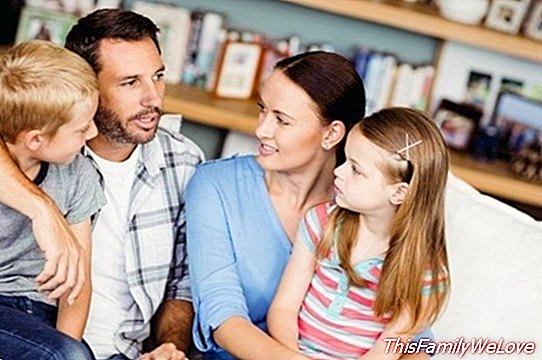Feelings and emotions in children, how to teach them to recognize and express them

Growing does not mean just increasing in size. As the years go by, different facets develop in the youngest members of the household, something in which parents must participate to ensure that this process develops properly. An example is the recognition emotional of the children themselves and to learn to manage their own feelings to regulate them.
In this sense the Emotional education aims to develop emotional competencies and contribute to better face the challenges of life and provide greater personal and social well-being both at younger ages and in more difficult stages such as the passage from childhood to adolescence and the end in adult life to face labor and sentimental conflicts, depression, situations of violence, avoidance of risk behaviors, etc.
Work in emotional education
From the International University of Valencia It is part of Goleman's concept to talk about emotional intelligence. This author explains in his book Emotional Intelligence The principles of these teachings:
- Know your own emotions. The first and most important step of emotional intelligence is being able to identify or be aware of one's emotions. The person who fails in this aspect is at the mercy of uncontrolled emotions, which is more than likely to cause many conflicts and negative situations.
- Manage emotions. Once the emotions are identified, people must become aware of them, in order to skillfully manage those feelings, filtering them, alleviating them if necessary and redirecting them along the right path.
- Motivate yourself. The orientation of emotions towards the achievement of objectives contributes to increase the effectiveness of the motivations. For this reason, emotion and motivation are two feelings that are intimately related and can feed back.
- Recognize the emotions of others. Empathy must centralize relationships with others. Empathic people have great ability to tune in with other people, capturing their signals, albeit subtle, to find out and even anticipate their needs and desires.
- Establish relations. Competence and social skills are the basis for interacting assertively with others, expressing our ideas and points of view without disturbing others.
Teach children to recognize emotions
How is it emotionally educated? The answer is simple, taking advantage of when you are appear. For example, if some activity does not go well, it is a good time to explain to the child that what is happening is called anger and how to channel this feeling. It should be explained that although this feeling is natural because everything never happens as expected, we must insist again to be able to feel joy to achieve the goal.
You also have to show what each one means emotion and encourage your speech to include these words to define how you feel. For example, at the end of the day, during dinner when you are commenting on how the day was, you have to try to make the child be able to define everything that he has lived through his emotions.
On the other hand, parents must teach that emotions they should not be something to repress, in any case to control. For example, in the case of children they are taught that crying is weak, something that supposes not showing a feeling such as sadness and that through tears is a good escape valve. In the case of anger we must show the child that in the face of frustration he can not do anything and that he has to try to calm down in these cases.
Damián Montero




